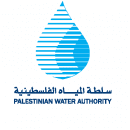Institutional Development Specialist
Introduction
The Palestinian Water Authority (PWA) is requesting a grant from the World Bank, and International Development Association (IDA) to increase equitable access to safe water and sanitation services and to improve service delivery. This objective is expected to be achieved over a 12-year period through a series of Projects (SoP), of which the operation detailed in this document is the first. The programmatic approach will ensure continuity of the sector engagement and also facilitate a sustained contribution to the Bank’s ongoing support to the water sector in the West Bank and Gaza (WB&G). The proposed Program will have strong links to the water sector interventions co-financed by the World Bank and the Partnership for Infrastructure Development Multi-Donor Trust Fund (PID MDTF) that play a crucial role in addressing the challenges in the sector and critical water services in priority areas under the first project, while also laying the basis for rebuilding better in the long-term.
The Program is expected to consist of three projects that will overlap in time and vary in geography, with a consistent component-level design to facilitate scaling-up. The three projects are expected to commence in 2023, 2026, and 2028, respectively. The anticipated duration of the first project is five years while the duration of subsequent projects is expected to be six years each, with overlapping periods. Overall SoP completion is expected by 2035.
The focus of the proposed SoP-1 will be on improving water services in line with the PWA’s priorities and the water sector’s strategic development plan and desire to improve water services in areas with the lowest water per capita and improve service providers’ operational and financial performance. In order to address the long-term structural challenges of lack of water supply, and contribute to a resilient and sustainable recovery, the project will also undertake strategic sector reform and capacity-building activities supporting water sector institutions, encouraging a robust reform agenda, and providing targeted technical support for improved management of O&M toward financial sustainability of the sector and contribute to the improvement and containment of and bolster the water sector’s resilience to future disasters such as COVID-19.
Project Components: The Project will consist of four components:
Component 1 - Improvement of Water and Wastewater service management: the project will finance investments in the water and wastewater facilities. The aim of these investments is to provide safely managed water supply services to unserved populations and ensure the efficiency of the operation and maintenance of existing wastewater treatment plants. This component will finance the implementation of the water supply infrastructure required to improve access to and quality of water supply in North Jenin including expansion of water distribution networks to remove critical bottlenecks and improve water allocation in selected areas in WB&G and preparation of feasibility studies for the second Project.
Component 2 - Improve performance of Water Sector Service Providers: This component aims at strengthening the capacity of the water institutions and the SPs’ operational and financial efficiency, and their responsiveness to emergencies. It will also provide necessary technical assistance and capacity-building activities to address sector challenges and sector reform to accelerate the implementation of reform related to the clustering of service providers under the LGUs and the establishment of RWUs. This subcomponent will also include interventions to enhance the PWA’s capacity to develop and implement water sector policies, strategies, and sector development plans and will support improved social accountability of service providers. The technical assistance will provide general planning and institution-building support to improve service providers’ performance in line with the PDO. In particular: (a) Sector Reform and Strategic Planning; (b) Improve Financial and Operational Performance of the Service Providers; (c) Improve Social Accountability of Service Providers.
Component 3 - Project Management and Monitoring: This component will support the Project Coordination Team (PCT) hosted within PWA and Project Implementation Unit (PIU) that will coordinate, implement, monitor, and report on the project implementation progress.
Component 4 - Contingent Emergency Response Component This component will improve the PA’s ability to respond effectively in the event of an emergency in line with World Bank procedures on disaster prevention and preparedness.
2. Individual Consultancy Service for Institutional Development Specialist
The PWA intends to hire an individual consultant to work on the water program as Institutional Development Specialist (IDS) as per the scope of work below.
Scope of Work of the consultant:
The IDS Consultant will first identify and assess the range of water service delivery models provided by the NSPIP as well as the proposed implementation plan. The consultant is expected to provide/consider possible models within that context. This work would include as a minimum:
- Review and provide comments on the identification of water supply models currently used/proposed in WB&G, including a description of management and operations arrangements, technology and levels of service, operating costs, the cost/tariffs paid by customers, and payment mechanisms, any ongoing subsidies and their sources, the source of capital investments, and the identification and management of capital investments.
- The identification of areas where the current investment or service models are considered inadequate, taking into account, for example, population densities and incomes other needs;
- An assessment of the role of Palestine Authority ministries or agencies in service delivery, including in the identification of service improvements, financing of capital investments (future), and any ongoing operational subsidies, whether cash or in kind;
- A review of service models used elsewhere (e.g., in neighboring countries), an assessment of their advantages and disadvantages, and an assessment of their applicability in WB&G. This may include an assessment of the cost implications of such models, human resource implications, regulatory needs, and the implications on private sector participation;
- As future strategy might include PPP, the consultant is expected to conduct an assessment of the potential role of the private sector in service models that are currently entirely public-sector or community-driven, and of the expansion of the role of the private sector in service models that are already a mix of the public and private sector. This should include an assessment of the service needs or improvements that such a role would intend to address and the cost implications (investment, operational, human resource) of an expanded private-sector role; and
- An assessment of the recommendation regarding appropriate investment and service models – public, private, or a combination – in underserved areas. This should include recommendations regarding transitional mechanisms from the existing model to the recommended model.
In addition, the consultant is also expected to
- Work closely with the Project PIU team and other stakeholders the consultant is expected to conduct and coordinate the PWA team’s efforts in building capacity, and advancing the development and implementation of the sector reform agenda and preparation of the investment plan as per the WSRP project components
- Coordinate, review, and participate effectively in close coordination with the PWA focal point of the institutional and sector reform activities and capacity-building Components as stated above through.
- implement institutional and organizational reforms,
- support improvement of financial management and performance,
- enhance technical performance in water services delivery,
- and capacity building to targeted staffs to strengthen operation and management of water system
- Participate in relevant meetings, especially during the project and prepare all reports for the mission as needed
- conduct capacity assessment and identify what capacity building is needed in terms of institutional aspects and ensure capacity development for PWA.
- The consultant is expected to participate effectively in the organization and participation of monthly project meetings with stakeholders including targeted service providers, PWA, and the World Bank, and present progress, achievements, and challenges
- Undertake other duties as per the requirements of the project or as directed by the PIU Director as might be required by the project.
جميع الحقوق محفوظة لموقع جوبس.
Minimum Required Qualifications:
- Proven record preferably with a B.Sc. in a field of institutional development, engineering, utility management, or business management or equivalent.
- Minimum 10 years of prior similar experience in the field of institutional development in the water sector or similar sector, coordination, and management.
- Experience in working in teams at different levels.
- Good management skills, particularly workshop organizing and moderation, communication skills as well as having the ability to work in a team.
- Languages: Fluency in Arabic and excellent English skills (written and spoken)
Time Frame and Application Procedure
The contract will be for 1 year extendable as demand necessity, on a full-time basis. The expected start date for the position is the 01st of December 2022.
Interested consultants shall submit her/his applications including (Cover letter, CV describing similar assignments, experience in similar conditions, availability of appropriate skills, etc.) which must be delivered by email addressed below no later than 10/10/2022.
For more clarification, please do not hesitate in contacting the us during working hours (8:00 am-15:00pm).
Tel: 02 2987665










